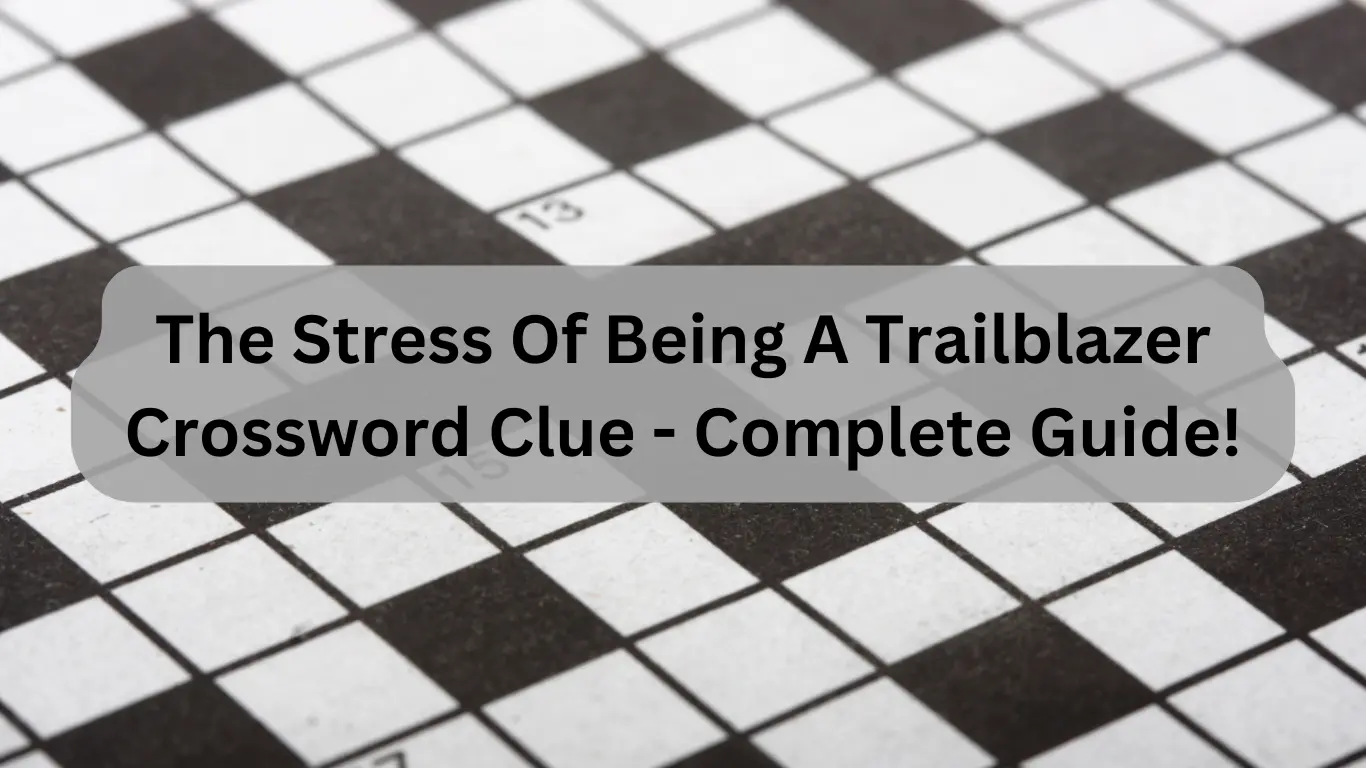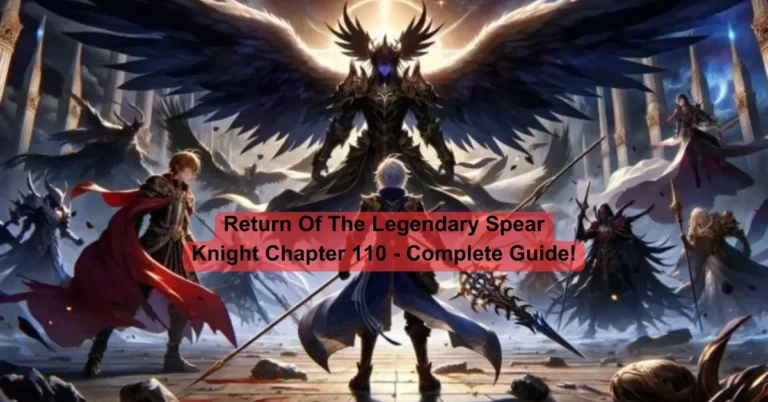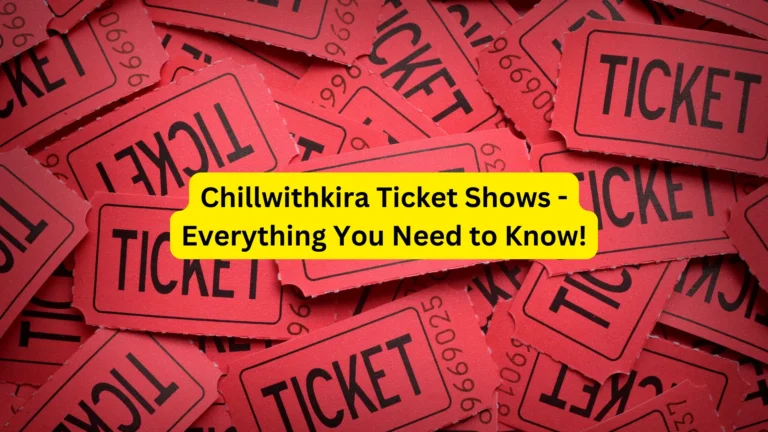The Stress Of Being A Trailblazer Crossword Clue – Complete Guide!
A crossword puzzle is a game where you fill a grid with words based on clues. The words fit into rows and columns, intersecting at certain letters, guided by numbered clues.
Table of Contents
Crossword puzzles are a popular form of word game that challenge your vocabulary, general knowledge, and problem-solving skills. Whether you’re a seasoned solver or new to the game, this guide will help you understand how crosswords work, how to approach them, and how to improve your solving skills.
What is a Crossword Puzzle?
A crossword puzzle is a grid of black and white squares where you fill in words based on given clues. The grid consists of across and down sections. Each word in the puzzle intersects with others at certain letters, creating a network of interlocking words. The objective is to fill in all the white squares with correct words based on the clues provided.
Structure of a Crossword Puzzle:
- Grid Layout: The grid usually consists of a square or rectangular pattern of white and black squares. White squares are where the letters go, and black squares are used to separate the words.
- Clues: Each word in the grid is represented by a clue. The clues are divided into “Across” and “Down” based on the direction of the word in the grid.
- Numbers: Each clue is associated with a number corresponding to the starting square of the word in the grid. The numbers indicate where the word begins, either horizontally or vertically.
Types of Crossword Clues:
- Straightforward Clues: These are direct definitions of the word you’re looking for. For example, “A type of fruit (5 letters)” where the answer could be “APPLE.”
- Cryptic Clues: Often found in British crosswords, these clues involve wordplay, puns, or hidden meanings. For instance, “Heavenly body (4 letters)” could be “STAR.”
- Anagram Clues: These clues provide a jumbled set of letters that need to be rearranged to form the answer. For example, “Listen” might be an anagram for “SILENT.”
- Charade Clues: These clues describe the word in parts or syllables, which need to be combined. For example, “Animal (3) + a type of tree (4)” might be “CAT” + “OAK” = “CAT-OAK.”
Basic Strategies for Solving Crossword Puzzles:
- Start with Easy Clues: Begin with the clues you find easiest. Filling in these answers first can give you letters that help with more challenging clues.
- Look for Common Patterns: Use common word patterns and letter combinations to help guess words. For instance, knowing that “____E” could be “APPLE” or “CAKE” can guide your guesses.
- Use Crossed Letters: The intersecting words can provide clues about the correct answers. If you know some letters in a word, it can help you solve other clues.
- Check the Number of Letters: Ensure your answer fits the number of spaces provided in the clue. Crosswords are precise, so the word must match the length indicated.
Advanced Techniques:
- Learn Common Crossword Abbreviations: Abbreviations like “E” for “east,” “N” for “north,” or “R” for “right” are often used in clues. Familiarizing yourself with these can be helpful.
- Understand Themes: Some crosswords have themes or patterns that tie the clues together. Identifying the theme can help solve more difficult clues.
- Practice Regularly: The more you practice, the better you’ll get at recognizing patterns and solving clues. Try different types of crosswords to improve your skills.
Common Challenges and How to Overcome Them:
- Unfamiliar Vocabulary: Crosswords often use uncommon words or references. Use a dictionary or thesaurus to look up unfamiliar terms.
- Ambiguous Clues: Some clues can be tricky or have multiple meanings. Think about different possible answers and see if they fit the intersecting words.
- Time Management: If you’re stuck, take a break and come back later with a fresh perspective. Sometimes stepping away can help you see the solution more clearly.
The Joy of Completing a Crossword Puzzle:
Completing a crossword puzzle can be highly satisfying. It provides a sense of accomplishment and can be a great mental exercise. It also offers a way to expand your vocabulary and learn new facts about various topics.
Crossword Puzzle Variations:
- Daily Puzzles: Many newspapers and websites offer daily crosswords of varying difficulty levels.
- Themed Puzzles: These puzzles have a specific theme, and all clues relate to that theme. Themes can range from pop culture to historical events.
- Cryptic Crosswords: Popular in the UK, cryptic crosswords involve complex wordplay and require a different approach compared to standard crosswords.
Crossword Puzzle Resources:
- Online Tools: Websites and apps like Crossword Solver, NYT Crossword, and others can help you find answers and provide hints.
- Books and Guides: There are many books and guides available that offer tips, strategies, and practice puzzles for different skill levels.
- Puzzle Communities: Joining online forums or local puzzle clubs can provide additional support and strategies from fellow enthusiasts.
Tips for Improving Your Crossword Skills:
- Read Widely: Exposure to a wide range of topics and vocabulary can help with solving diverse clues.
- Practice with Different Puzzles: Try various types of crosswords to build versatility in your solving skills.
- Stay Persistent: Some puzzles can be challenging, but persistence and practice will improve your skills over time.
FAQ’s:
1. What is a crossword puzzle?
A crossword puzzle is a word game where you fill a grid with words based on clues, arranged in “Across” and “Down” sections.
2. What are common types of crossword clues?
Common clues include straightforward definitions, cryptic puzzles, anagrams, and charades, each requiring different solving techniques.
3. How can I start solving a crossword puzzle?
Begin with easier clues to fill in letters, look for common patterns, and use intersecting words to solve more difficult clues.
4. What are some advanced strategies for solving crosswords?
Learn common abbreviations, identify themes, and practice regularly to improve recognition of patterns and solving techniques.
5. How can I overcome common crossword challenges?
Use a dictionary for unfamiliar words, consider multiple meanings for ambiguous clues, and take breaks to approach difficult puzzles with fresh eyes.
Conclusion:
Crossword puzzles are a stimulating way to enhance your vocabulary and problem-solving skills. By understanding the structure, clues, and strategies involved, you can tackle puzzles with greater confidence. Regular practice and familiarity with different types of clues will improve your ability to solve crosswords effectively. Embrace the challenge, enjoy the satisfaction of completing a puzzle, and continue to expand your solving skills through diverse and engaging puzzles.







